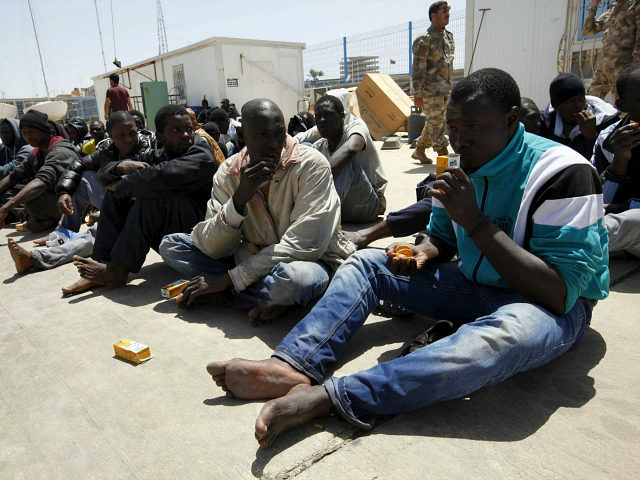
Going beyond ‘Libya slavery’ scare
After the international news channel, CNN, uncovered the disturbing human trade in Libya recently, I have read reports and seen heart-wrenching and dehumanising images of slave markets and the sheer abuse of Black African migrants being tortured to death in that country on the social media is most distasteful.
Watching footages in which some stranded Black Africans who had hopes of embarking on journeys to Europe through the Mediterranean were being sold off at 400 dollars per person, I got scared and disturbed.
What is even more troubling is how some Black Africans, including some Ghanaians, are dying on the Sahara desert.
Ghanaians detained
Though there are reports of a substantial number of Ghanaians detained in Libya, it is reassuring that the Ministry of Foreign Affairs says no Ghanaian has been sold off as a slave in Libya and that efforts are being made to facilitate their travel back home to Ghana.
Notwithstanding, we cannot easily discount concerns that some Ghanaians could be caught up in that despicable development of slavery and become victims of that torturous activity in Libya. Already, some Ghanaian Libyan returnees have started sharing their harrowing experiences with the media.
Why risk odds?
Migration from Ghana through the desert to Europe is one of the most perilous journeys to embark upon, so why do some Ghanaians risk the odds to embark on such dangerous journey despite the early warning signals? Intriguingly, some would-be Ghanaian migrants can afford to save and pay colossal sums of money ranging from US$6000 and beyond. Some even go to the extent of selling family properties, including houses, to pay for the cost of such dangerous journey.
The question that keeps agitating the mind is: what really are the compelling reasons for some Ghanaians to leave their country of birth to other strange jurisdictions?
Ghanaians are found in many parts of the world, including North Africa, Europe, US, Middle East and Far East, including Afghanistan and Kazakhstan.
While few Ghanaians are engaged in high-profile jobs at these global locations, many others are found doing menial jobs ranging from housekeepers, security, small-scale factory hands, shop attendants and labourers in the construction industry.
If one observes what the Ghanaian can do outside the shores of the country, it will be very difficult to describe Ghanaians as lazy. Most of them have some requisite skills to work hard to contribute to the development of their dear nation, yet they believe they have little choice and opportunities at home, so brace the odds to travel abroad.
Many people do not know how it feels not to have food on the table, talk less of having a capital to start something small for sustainable living.
Indeed, when all hope is lost in making it in your country of birth and daily frustrations and desperation set in, many of us will turn deaf ear against all good advice and rather seek the so called greener pastures outside the shores of the country.
After all, some have argued it is better to be a slave in another man's country than to be a slave in your own country.
Economic survival
Yes, let us continue to encourage and give hope to Ghanaians to make the best here, but beyond this rhetoric is the need to do more to put in place bold, innovative and pragmatic policies to convince Ghanaians to believe in themselves by utilising the opportunities at home for sustainable living.
It is time for our political leadership, both in government and in opposition, to embrace inclusive participation in governance to bring relief and rapid development to the many Ghanaian citizens who are living in distress and need to be rescued.
The key interest is: what are the opportunities left for or being rolled out for our distressed and frustrated brethren in Ghana and the diaspora?
Thankfully, the government of the New Patriotic Party (NPP) is rolling out a number of social intervention policies, including planting for food and jobs, one-district, one-factory, one-village, one-dam for irrigation and agricultural purposes and free SHS to help with the transformation agenda of the country.
Our returnee brothers and sisters, particularly from Libya, having gone through such distasteful experience, need to put their shoulders to the wheel at home and take advantage of the various intervention policies. After all, when the various initiatives succeed it is the larger Ghanaian populace that will benefit.
